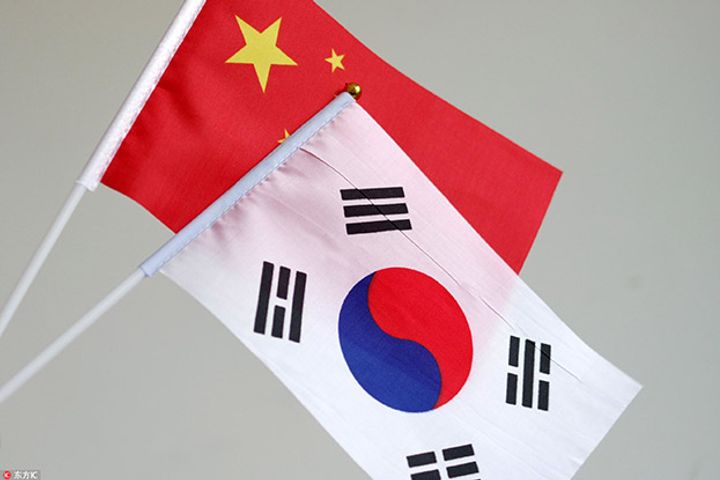 Hundreds of Korean Firms to Take Part in CIIE as Bilateral Ties Reach New Stage
Hundreds of Korean Firms to Take Part in CIIE as Bilateral Ties Reach New Stage(Yicai Global) Oct. 31 -- Nearly 300 South Korean companies will take part in the first China International Import Expo which starts on Nov. 5 in Shanghai. They include large enterprises like Samsung and SK as well as many small and medium-sized firms, covering a range of industries agricultural and aquatic products, services, household appliances and beauty products. South Korea will operate two pavilions, the enterprise pavilion and the national pavilion, covering a total of 7,500 square meters.
"The opening of the import expo will revive the stagnant trade situation between China and South Korea" Uk-Tae Seo, chief delegate for the Korean International Trade Association's Shanghai Center, told Yicai Global.
The majority of South Korean companies taking part have done or are currently doing business with Chinese firms, Seo said, adding that companies and markets from both sides complement each other and share some common features.
New Stage for China-Korea Cooperation
"We have to admit that South Korea faces a very practical problem: domestic demand remains weak, and with the drop of birth rate, market vitality will further decline in the future, he said, adding that an environment for stable economic development is needed and the stagnant growth can only be revived through opening up and expanding into other countries."
As an expert in Chinese culture in the South Korea's parliament and a member of the ruling Democratic Party of Korea, Young-Gil Song was named as chairman of the Presidential Committee on Northern Economic Cooperation by President Mun Jae-in to promote economic cooperation with east and central Asian countries under the nation's "New Northern Policy."
"South Korean companies developing in China feel the transformation and upgrading of the Chinese market," Doo-Hee Le, professor of Korea University Business School and chairman of Korean Management Association (KMA), told Yicai Global. "The demand for South Korea has also transferred to other less developed areas including distribution and driving cooperation from low value-added intermediary trades."
"Many companies still face problems in terms of distribution, supply chain construction and accessing consumers" Seo commented based on the results of a survey involving companies taking part in the expo.
China has a large market and significant regional differences, which makes it difficult to build a highly efficient supply chain network, Jun Kim, chairman of Association of International Merchandisers, said. The association focuses on the construction of a global distribution network covering online and offline fields and offers related services for the expansion of Korean products into global markets.
More Opportunities Than Challenges
Taking the cosmetics industry as an example, chairwoman of the Korean Chamber of Commerce in Shanghai Yeong-Hee Song discussed the sustainability of cooperation between China and South Korea. She thinks the rapid upgrading of Chinese industries presents more opportunities than challenges for Korean companies.
Like South Korea, Chinese women's consumption of beauty and makeup has gone through a process from satisfying basic needs to constant upgrading during a period of more than 10 years, Song said. Continuously observing consumers and the market is the biggest reason behind Korean cosmetics players success in the Chinese market.
For Korean companies which have or have not entered the Chinese market, relying on the opening up of China is not enough. On the other hand, they should learn more about the Chinese market and what Chinese consumers like and combine their unique strengths and values instilled in Korean products.
KMA's Doo-Hee Lee thinks that with the development and progress of Chinese technology, there will be greater competence between the two countries' industries, but China and South Korea can also cooperate on exploring each other's market and emerging industries like artificial intelligence, environmental protection and service trade.
Though competence between China and South Korea is increasing, the two countries still have their own advantageous sectors in the global industrial chain due to different national conditions, which will also become the basis point for cooperation between China and South Korea, Chul-Joo Hwang, honorary chairman of Korea Venture Business Association and chief executive officer of Korean chip equipment firm Jusung Engineering, told Yicai Global.
Editor: William Clegg